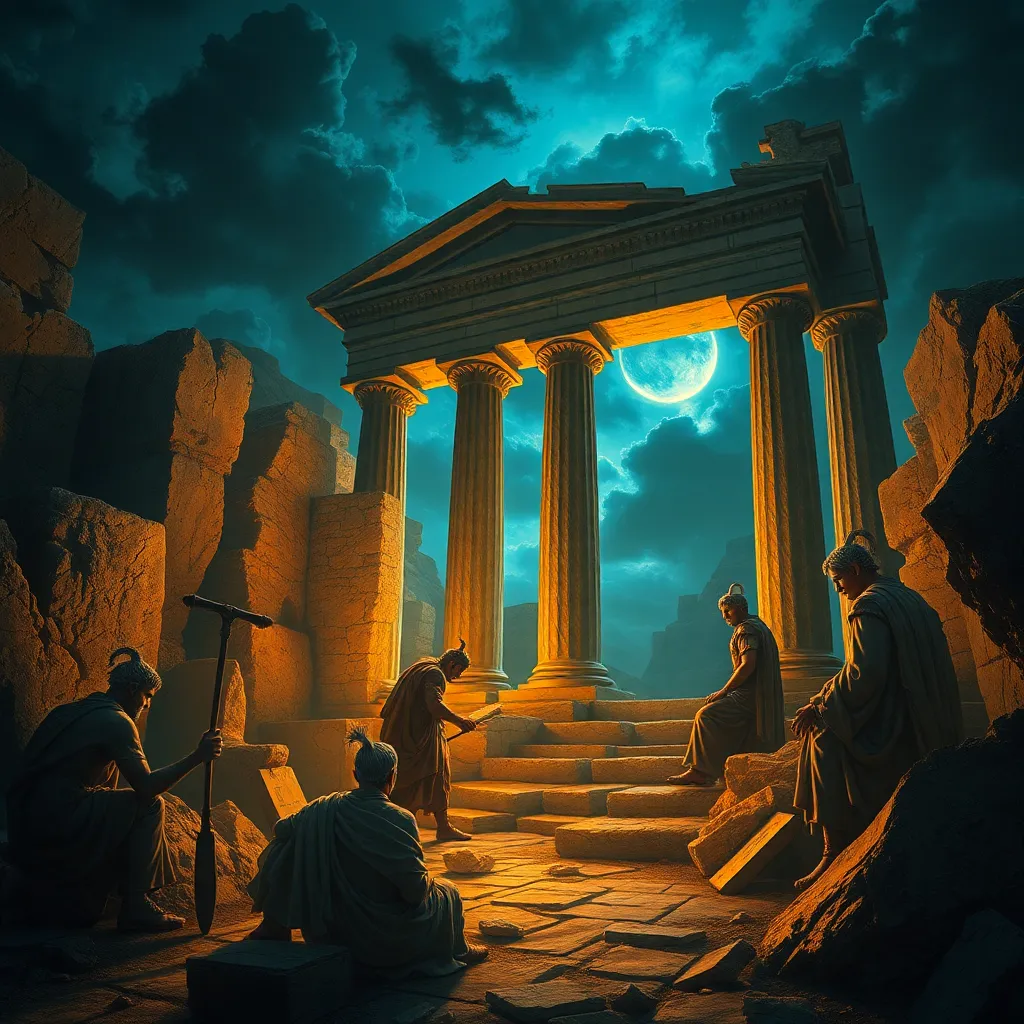The Myths of Theseus: A Study in Human Emotion and Conflict
I. Introduction
Theseus, one of the most celebrated heroes of Greek mythology, embodies the complexities of human emotion and conflict. As the mythical king of Athens, his tales encompass themes of bravery, love, betrayal, and the perennial struggle between fate and free will. Theseus serves not only as a heroic archetype but also as a reflection of the emotional struggles faced by humanity.
The significance of Theseus in Greek mythology cannot be overstated. His adventures, from slaying the Minotaur to his tumultuous relationships, provide insight into the human experience. This article aims to explore how Theseus’ myths reveal the depths of human emotion and the conflicts that arise from them.
II. The Heroic Archetype of Theseus
Theseus is often characterized by several heroic traits that define his status as a hero:
- Courage: Fearlessly facing monstrous adversaries.
- Intelligence: Using wit and strategy to overcome challenges.
- Compassion: Demonstrating care for his people and allies.
- Leadership: Leading the Athenians and uniting various tribes.
The role of the hero in myth and society is multifaceted. Heroes like Theseus symbolize the ideals and values of their culture, acting as models of virtue and resilience. They also serve to demonstrate the human condition, showcasing the emotional struggles that accompany lofty aspirations.
Heroism is inextricably linked to human emotion. Theseus’ journey reflects the trials of love, loss, and ambition, illustrating how even the mightiest heroes grapple with their feelings and moral dilemmas.
III. The Labyrinth and the Minotaur: A Metaphor for Inner Conflict
The story of the Labyrinth and the Minotaur is one of Theseus’ most famous adventures. The Labyrinth, designed by Daedalus, symbolizes the complexity of the human psyche, filled with twists and turns that represent the struggles we face within ourselves.
The Minotaur, a creature born of fear and repression, embodies the darker aspects of human nature. This monster resides in the depths of the Labyrinth, representing the fears that we often hide away. Theseus’ journey through the Labyrinth signifies a confrontation with his own inner demons, where he must face not only the Minotaur but also the fears that threaten to consume him.
IV. Love and Betrayal: The Story of Ariadne
The relationship between Theseus and Ariadne is a poignant narrative within his mythos. Ariadne, the daughter of King Minos, falls deeply in love with Theseus and aids him in his quest by providing him with a ball of thread to navigate the Labyrinth.
This tale encapsulates themes of love, sacrifice, and betrayal. While Ariadne’s love is genuine, Theseus ultimately abandons her on the island of Naxos. This act of betrayal highlights the emotional turmoil that can accompany love and the complexities of human relationships.
The emotional ramifications of Ariadne’s abandonment are profound. She is left heartbroken, a victim of Theseus’ pursuit of glory and adventure, emphasizing the often-painful consequences of human choices and desires.
V. The Duality of Theseus: Hero and Anti-Hero
The character of Theseus is not a straightforward hero; rather, he embodies a duality that complicates his legacy. His actions are often marked by moral ambiguities, making him both a hero and an anti-hero.
Some of Theseus’ conflicting actions include:
- His initial bravery contrasted with moments of cowardice.
- His noble intentions sometimes leading to reckless decisions.
- His relationships, which oscillate between love and betrayal.
This complexity impacts Theseus’ emotional state and relationships throughout his journey. His conflicting actions serve as a reminder that heroes are not infallible; they are shaped by their experiences, choices, and flaws.
VI. The Role of Fate and Destiny in Theseus’ Life
The journey of Theseus is heavily influenced by the gods and the concept of fate. From his birth as the son of Aegeus, the king of Athens, to his encounters with various deities, the notion of destiny looms large over his life.
The tension between free will and predestined outcomes is a recurring theme in Theseus’ narratives. Despite his heroic endeavors, he often finds himself grappling with the constraints of fate.
Theseus’ emotional responses to fate illustrate a common human struggle. His confrontations with destiny provoke feelings of frustration, acceptance, and sometimes despair, showcasing the inevitability of conflict in the human experience.
VII. The Legacy of Theseus: Lessons on Human Emotion and Conflict
The legacy of Theseus continues to resonate in contemporary society. His myths offer enduring relevance, providing insights into the nature of human emotions and conflicts.
Through the lens of Theseus’ experiences, we can glean valuable lessons:
- Understanding Inner Conflict: Recognizing and confronting our fears is essential for personal growth.
- The Complexity of Relationships: Love often entails sacrifice, and betrayal can lead to profound emotional pain.
- Embracing Duality: Accepting our flaws and complexities can lead to a more profound understanding of ourselves.
These lessons on conflict resolution and personal growth are timeless, urging us to reflect on our emotional journeys in light of Theseus’ legacy.
VIII. Conclusion
In conclusion, Theseus emerges as a multifaceted figure who embodies the richness of human emotion. His tales are not merely stories of adventure; they are explorations of conflict, love, and the complexities of the human spirit.
As we delve into the myths of Theseus, we gain insights into our struggles and triumphs. His journey invites us to reflect on our own emotional narratives, encouraging us to navigate our labyrinths with courage and resilience.




